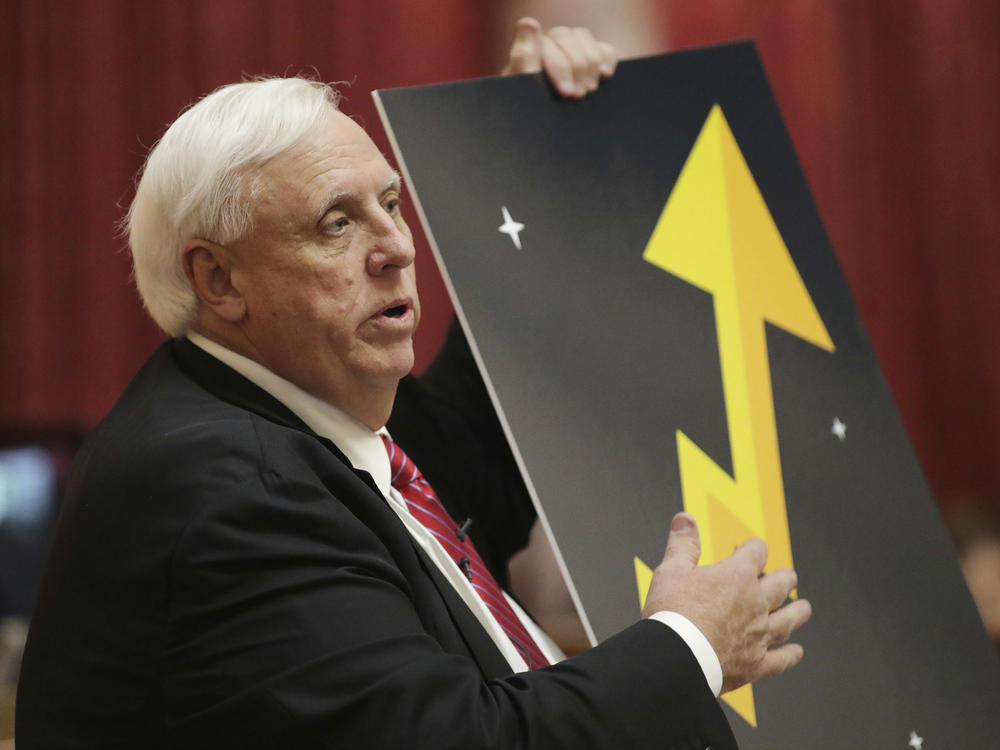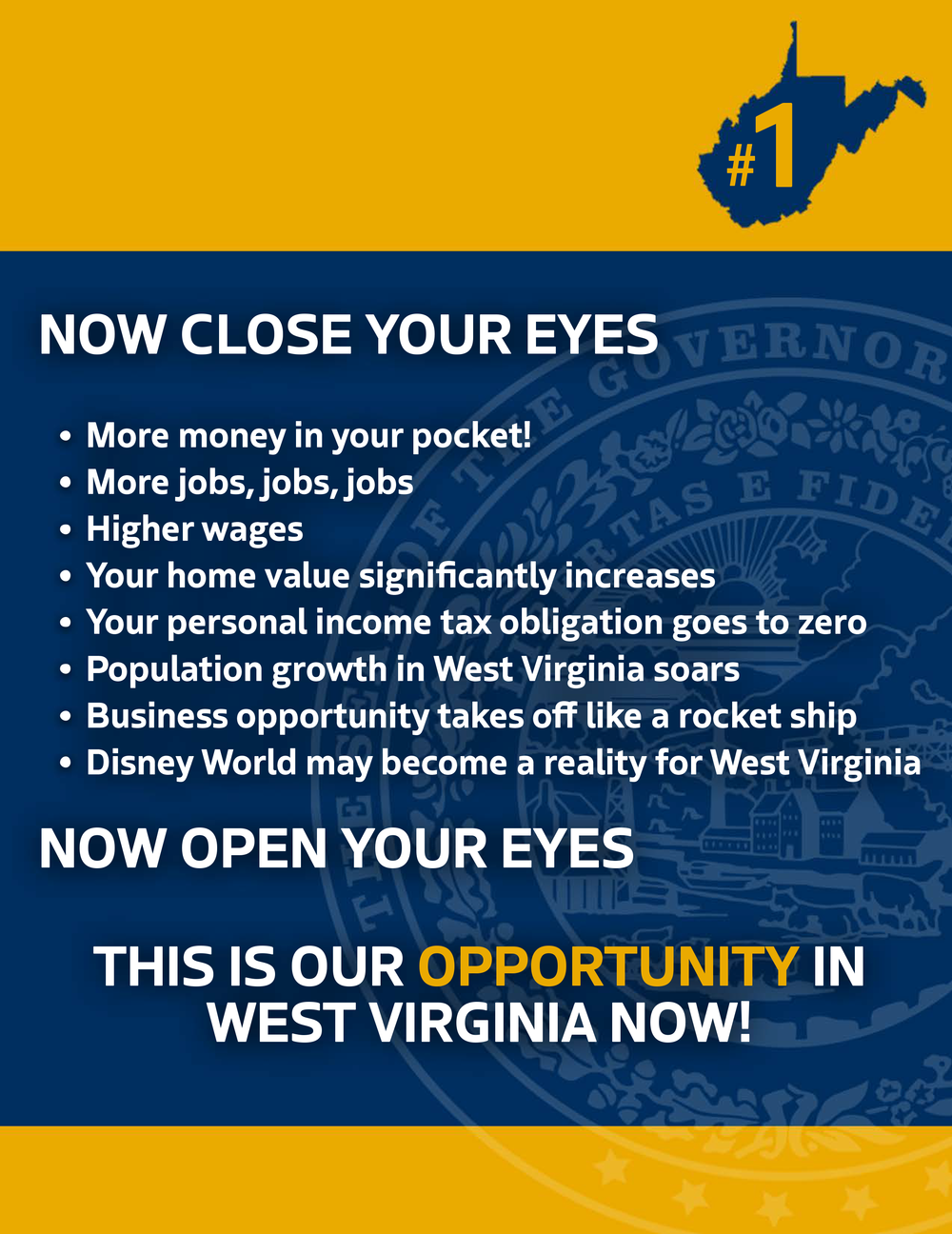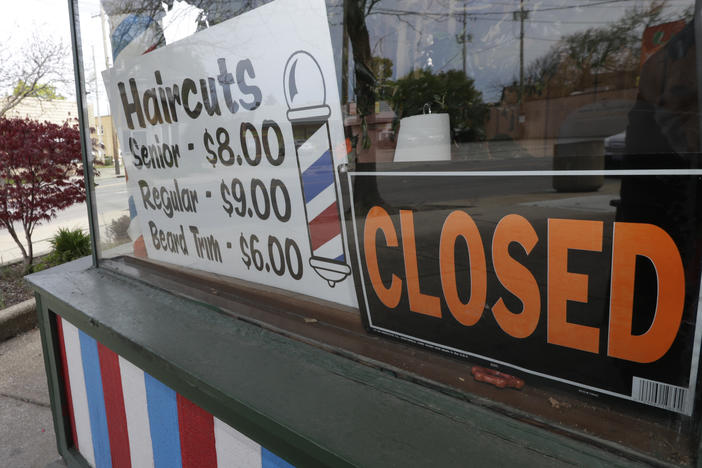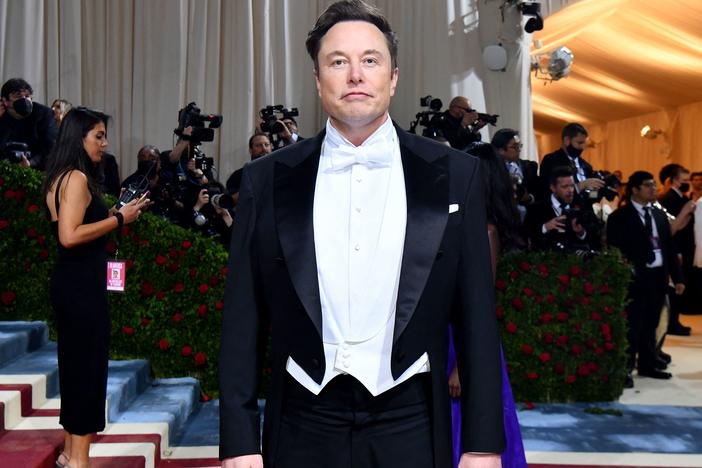Section Branding
Header Content
W.Va. Gov. Wants A Population Boom And A Disney Theme Park. His Plan? Income Tax Cuts
Primary Content
When Republican Gov. Jim Justice of West Virginia rolled out a plan this month to reduce the state's personal income tax, he referred to maps and charts that showed that the state has been hemorrhaging population. According to the U.S. Census Bureau, West Virginia is the only state to have lost population, overall, since 1950.
Justice said now is the moment to try something bold to turn the population decline around. West Virginia has been in the national spotlight for its rollout of the COVID-19 vaccine.
"How we've handled COVID and how we've handled the economics of COVID, really and truly, we have knocked it out of the park," the governor said.
Under Justice's plan, all tax filers would see a 60% tax cut on wages and salaries, as well as on Social Security, unemployment and retirement benefits.
But the plan would cost the state more than a billion dollars — or nearly a quarter — of its general revenue budget. To account for that revenue loss, Justice has proposed massive hikes on tobacco, alcohol and soda taxes.
Most notably, though, the plan would bump the consumer sales tax from 6% to 7.9% — making it the highest base rate of any state in the United States.
Even so, the governor promises that his idea would be a net win for taxpayers and would provide much-needed economic growth in a state that has seen the decline of its once-dominant coal industry.
He also dreams of another win for the state — one that has found its way into marketing materials for the plan. It's a goal that Justice has referenced for years and has repeated often in rolling out his tax reform proposal.
"I really, really believe that there is a real chance of landing real entertainment — landing, you know, the next Disney, the next Dollywood, whatever," he said at a recent event touting the plan.
But those in West Virginia's business community argue that the plan merely shifts the burden from one revenue stream to others.
"I think that the proponents of the current plan might simply have overlooked, or underestimated, the impact of these proposals on businesses," says Steve Roberts, president of the West Virginia Chamber of Commerce.
Among other concerns, Roberts takes issue with the proposed increase to the consumer sales tax, especially given that higher populations are concentrated in many of the state's border counties.
"If we adopt a sales tax rate that would make our state sales tax so much higher than surrounding states', we're afraid that people will find the incentive to run next door to do their shopping," Roberts says.
Where people spend their money is one thing. But tax experts say getting people to move to a different state in droves by reducing the state income tax — as the governor hopes — is a different ballgame altogether.
"It's not a panacea that solves every last one of your problems in attracting people or growth," says Jared Walczak, vice president of state projects at the Tax Foundation, a nonprofit group often described as center-right.
Some states, he says, have done well in growing their economies by lowering income taxes or eliminating them entirely.
The governor often points to states like Florida, Tennessee and Texas as growing their populations — at least in part — by lowering their tax burdens, including personal income taxes.
But Walczak remains skeptical that West Virginia could bring in people on a scale that Justice and other Republican leaders are hoping for.
"West Virginia can accomplish some of that as well, but you don't want to be banking on hundreds of thousands of people moving into the state," Walczak says.
Where the governor's plan goes now, though, is in the hands of lawmakers.
Leaders in the state's GOP-led Senate are on board for a bold approach.
But top Republicans in the House of Delegates say they're willing to reduce the personal income tax — just not at the expense of other drastic hikes.
Copyright 2021 West Virginia Public Broadcasting. To see more, visit West Virginia Public Broadcasting.
Bottom Content





